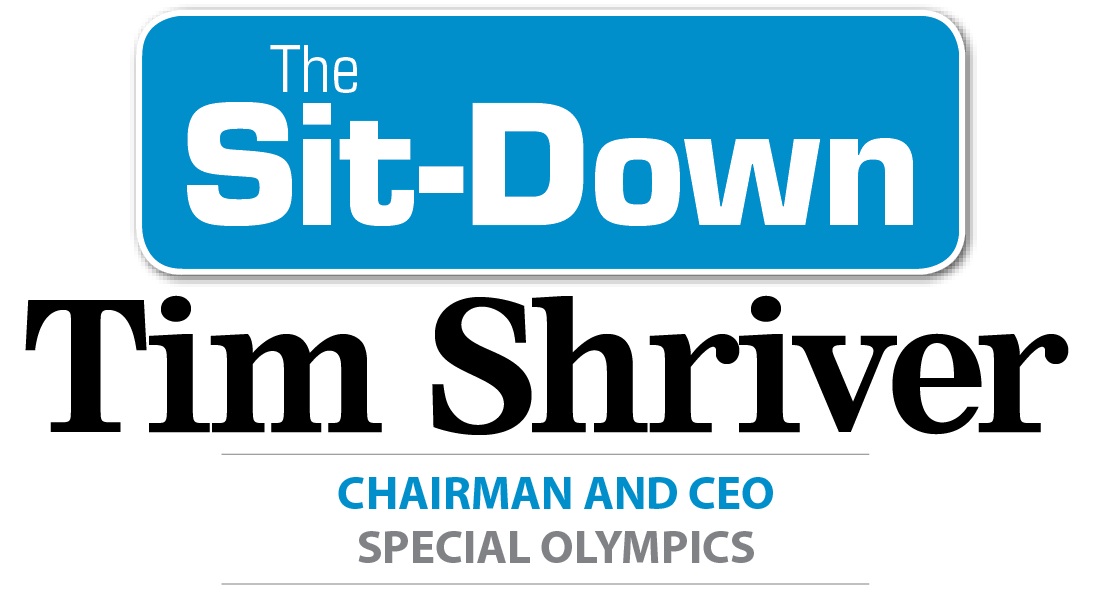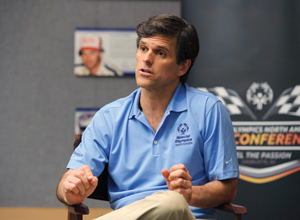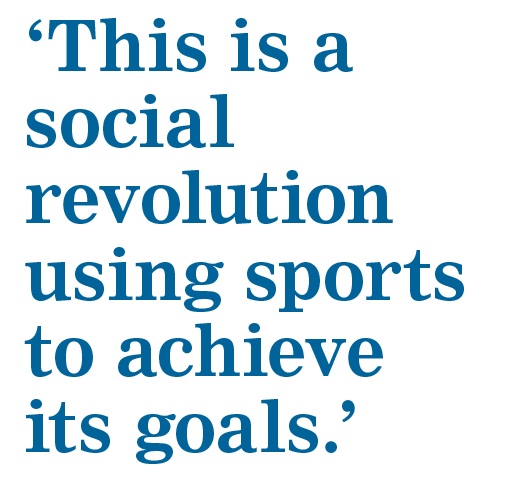
Tim Shriver’s first exposure to Special Olympics came in his own backyard — his mother, Eunice Kennedy Shriver, founded the movement. During the group’s recent North America conference, he spoke about his own path and the part that sports marketing will play in the future of Special Olympics.
S
o many of us who are in the movement come from families who raised us in Special Olympics. That’s true of a lot of people. … So we’re a family-oriented organization in concrete ways.
I think what’s most interesting to me today is that this is not a sports organization trying to find a larger social purpose. This is a social revolution using sports to achieve its goals.
I remember some of the Camp Shriver scenes, as a young child would remember them. I remember the school buses arriving. I remember the raising of the American flag in the morning and the playing of the trumpet. I remember my house turning into something of an amusement park. Horses came. All kinds of sports equipment. If you’re 4 or 5 years old, what’s more fun than your backyard being drenched in games?
 |
Photo by: SPECIAL OLYMPICS
|
I remember people who had behavior challenges, who were non-verbal, and being curious about it. It wasn’t as though it was all cute and beautiful. It was human beings challenged and challenging.
But the most profound memory was that it was fun.
I even say this to my kids now, if you can find something that’s both fun and important at the same time, you’ve hit the real strike zone in life. Because most of the things that are fun aren’t important and most of the things that are important aren’t fun.
I had been a volunteer all my life. Played on Unified teams. All that. But I was absolutely firm in my belief that my career was in education. If somebody had said, do you want to go work for [Special Olympics], I’d have said no. It was not my plan.
I think anybody who grows up with their parents dominant in an area has some desire to get out and do their own thing and prove themselves. There was no way I was going to be the Shriver kid who took over for his mommy and his daddy. No chance.
Some things have to happen to you to understand them. And this happened to me. But it turns out it’s the best job in the world.
If you look at it from a cultural point of view, we still have a long way to go. If you look at it from an organizational point of view, I think we’ve grown the movement substantially. … We’ve developed a growing army of revolutionaries who see play as a way to change culture.
I think we’re at the end of a generation of pioneers who helped build the movement in the ’60s and ’70s. You look around at the United States programs and they’re led by people, many of whom have been there less than five or 10 years. They have fresh insights. They’re looking at digital strategies. They’re looking at education strategies. Community development. Issues like obesity and nutrition and fitness, and not just participation.
This is a new era. We’ve seen a lot of evidence that this is a different generation when it comes to issues around stereotyping and prejudice and discrimination. And I think the nation will benefit from it.
I think we’re on the precipice, at least in many places, of an era in which we can almost hope we’ll be able to take for granted that there will be a boys basketball team and a girls basketball team and a Special Olympics Unified basketball team.
I can already hear: “I’d love to do this but, sorry, last year we got our budget cut.” It’s always the same with our population. It’s always, “We’d love to help except …” … That’s why we’re here. We’re not willing to accept those excuses.
The pro leagues and teams have been terrific ambassadors of Special Olympics. The athletes have been there. The NBA has been terrific as a league, and it shows in the expansion of our basketball program in this country.
You can’t have a better combination of sport and social change, in my view. So we ought to be much more prominently featured in the sports leagues. But I don’t blame them. I blame myself. Why haven’t I been able to articulate that better?
I think it’s important to remember that there are still a lot of people who have an uncomfortable relationship with human difference. And I think we still are trying to overcome those feelings of discomfort.
I would love to see a day when these teams not just have halftime photo shoots, but have real, engaged involvement. We want training applications. We want the best fitness and physical development available. … If we’ve got a child who wants to play basketball who is 16 years old,
we want to treat him like a serious athlete, not just like a good kid.
We don’t have 100 million eyeballs watching the playing fields where Unified Sports is taking place. But I think the big frontiers in sports business are finding ways for marketers to help the people who are inactive. Who are playing video games. Who are unnecessarily obese. Who are getting diabetes at premature ages from inactivity. Getting them out onto the field. We’re in the strike zone there.
We’ve never funded a large event in the way they’re doing it at [next year’s Special Olympics USA Games in New Jersey]. It’s a sports-marketing-funded model.
They’ve always been largely philanthropic. … But the games in New Jersey made a big gamble. And that gamble was that people were going to fund these games for traditional sports marketing reasons. It will be fascinating to see the kinds of sports marketing strategies that emerge. Most of the sponsors are in place. What they will do and how they’re going to activate is TBD.
I had a phone call with David Stern years ago. He said, “What’s your tag line?” I can’t even remember what it was. But he said, “That’s a terrible tag line.” He said, “You know what you should say? You’re the best in sports.” I said, well, a lot of people think the NBA is. He said, “No. You’re the best in sports.”






